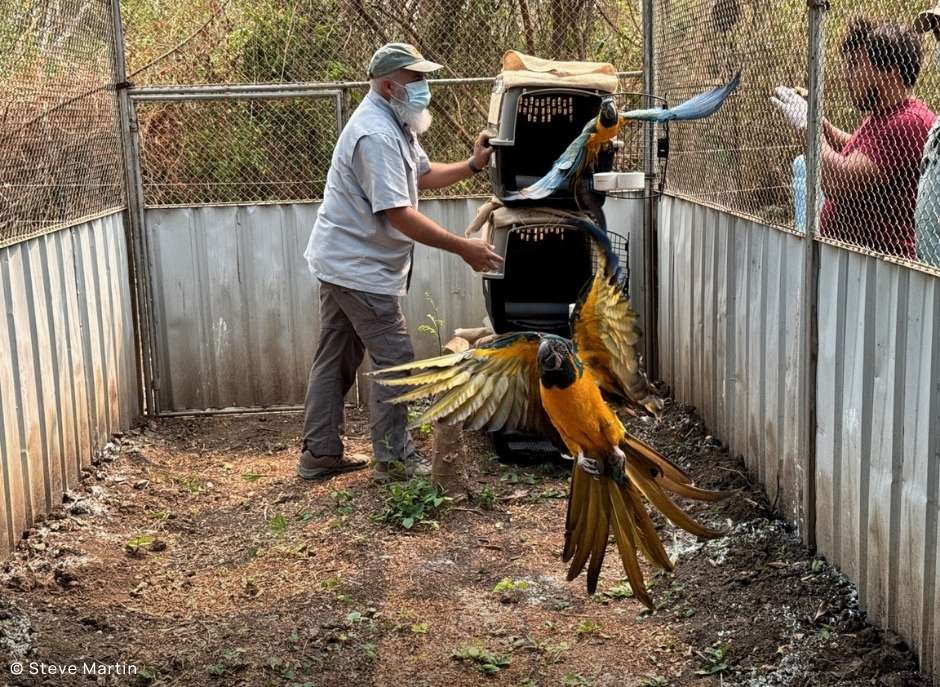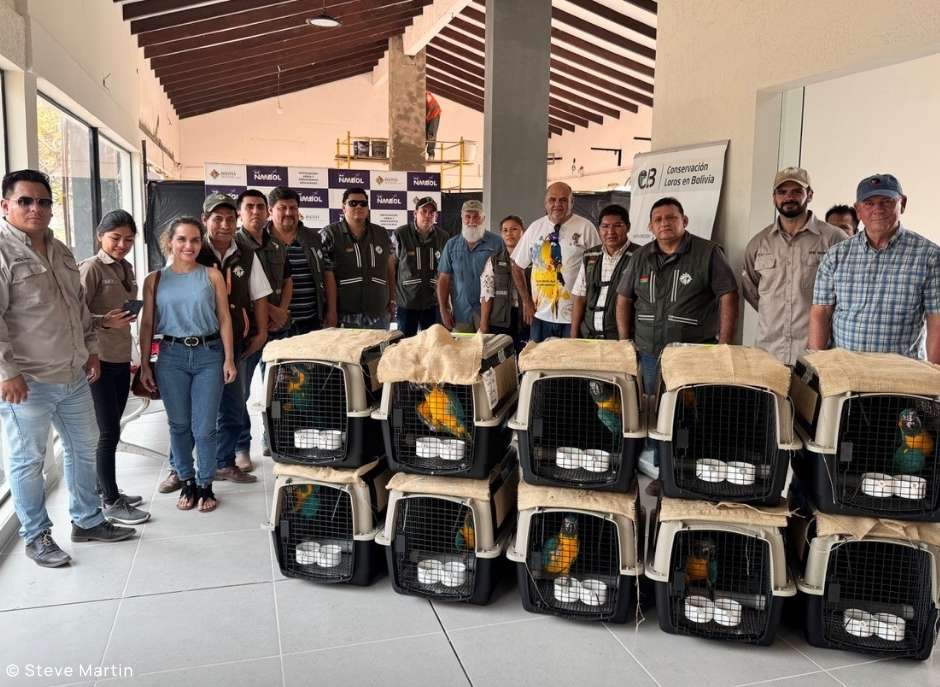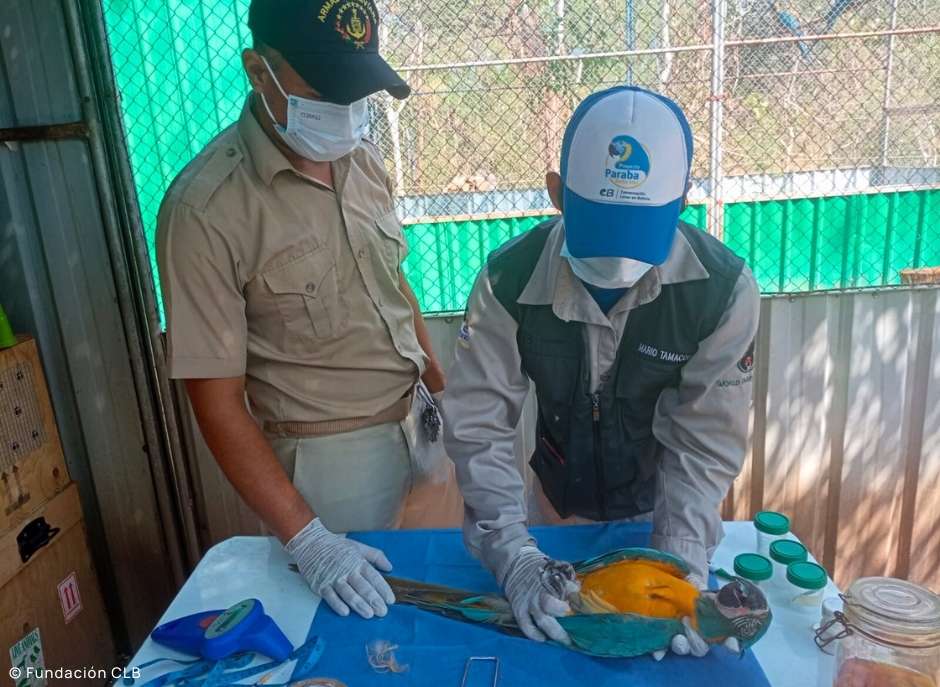We are thrilled to share the incredible news of the successful repatriation of 14 Critically Endangered Blue-throated Macaws back to their native home in Bolivia. With only around 400 individuals remaining in the wild, efforts like these are crucial to ensuring their survival.
We commend the dedication of the Bolivian government and key organisations, including Servicio Nacional de Sanidad Agropecuaria e Inocuidad Alimenataria [SENASAG], Direccion General de Biodiversidad y Areas Protegidas [DGBAP], the Gobierno Departamental del Beni, and Universidad Autónoma del Beni “José Ballivián,” for their decisive actions to protect these iconic birds.
The 14 macaws (8 males and 6 females) arrived on September 26th from Natural Encounters, Inc. to the Beni region of Bolivia. This repatriation marks the third successful effort in the past year to return captive Blue-throated Macaws from international zoos to Bolivia, bringing the total number of macaws repatriated to 27, a significant milestone in the species’ recovery.
The macaws have undergone thorough health checks and are adapting well to their new environment and native diet. They are currently in quarantine until November 7th, after which they will move to the flight aviary to support ongoing conservation efforts alongside their wild counterparts.
This collaboration highlights the power of unity among governments, NGOs, and local community groups in the fight to save endangered species. Together, we can secure a future for these magnificent birds.



